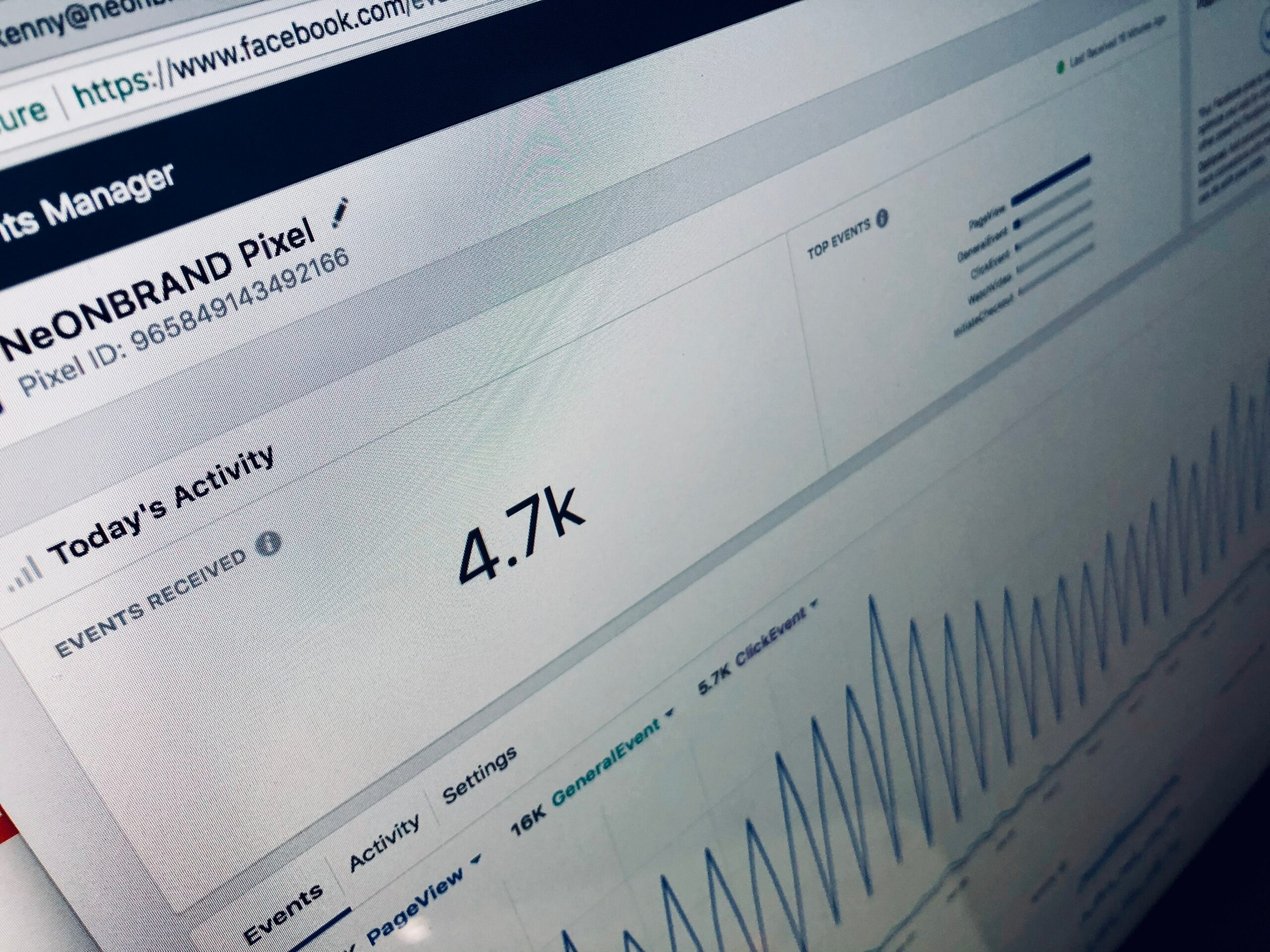Meta Ads Manager is a powerful marketing platform used by millions of businesses and advertisers. The rules, however, are tricky to navigate, and Facebook is very strict about following them.
The notification “Facebook ad account disabled” often appears for businesses and individuals – and it’s frustrating, to say the least.
The Facebook ad review process is complex and involves several factors for ads to be approved. To avoid having your Facebook ad account disabled, you need to understand the rules and regulations of the platform.
This includes avoiding clickbait farms—the unethical generation of clicks on ads without providing any real value. Remember that Facebook’s algorithm can’t tell the difference between a mistake and someone trying to get around their system.
In this article, we’ll give you a 20-step checklist that will help you avoid having your Facebook ad account disabled.
Why Does Facebook Restrict Accounts?
To begin, understand what “Facebook Ads restriction” means.
When your Facebook account is restricted, it means that Facebook has found suspicious behavior or a policy violation. They then temporarily stop you from advertising.
This restriction can be permanent or temporary, depending on the severity of the policy violation.
The most common reason for a disabled Facebook ad account is a policy violation such as using inappropriate language or making false claims in ads.
Other common violations include running ads that are too similar to existing ones, not following proper targeting guidelines, and running too many ads simultaneously. All of these can result in a disabled Facebook ad account.
Does Facebook Need the Money From Ads?
Ads made up almost 97.6% of Facebook’s revenue in 2022, so yes, they’re essential. Targeted advertising lets companies reach out to more potential customers than ever before. Ad revenue also supports platform research and development.
Good User Experience
For a business to be successful, user experience is very important. This is especially true when it comes to Facebook ads. A good user experience means that users are able to easily navigate and understand the content of your ads. They can find what they’re looking for quickly and without confusion.

Best Practices: Avoid Getting Facebook Ad Account Disabled
To ensure that you do not end up with a disabled Facebook ad account, there are several best practices you should follow along with Facebook ad policies to avoid getting suspended.
1. Get Your Facebook Business Manager Verified
Facebook Business Manager is a powerful tool for businesses to manage their Facebook ads, pages, and other assets. It’s also a great way to protect your business from a disabled Facebook ad account.
Verifying your account will help you avoid any potential issues with Facebook’s policies and give you access to additional features.
2. Facebook Circumventing System
Advertisers cannot take actions meant to get around Facebook’s ad approval process, although everyone tries. This includes strategies that try to hide the advertisement’s real content or final (landing) page. Always be transparent and present your product, service, or business clearly.
3. Congruency Between Ad And Landing Page
It’s important that the ad and landing page match up. This can have a big impact on how engaged users are with the campaign. When visitors click on an ad and arrive at a landing page that doesn’t match what they saw or expected, it creates a sense of confusion. Also, when the two are similar, it helps make sure that the message stays the same and reinforces the brand’s identity.
4. Congruent Ad Text And Creative Facebook Advertising
Make sure that the message from the ad is also present on the landing page. This includes using images on the ad on the landing page.
If the ad copy mentions deals that end soon or are only available for a short time, they should also be on the landing page. Both the ad and the landing page should have a design that is uniform.
This means that both elements should have the same graphics, font styles, and colors to avoid differences. For example, if you use cartoon characters in your ad, you should consider incorporating this theme into the design of your landing page for consistency.
5. Don’t Try Hard For Clicks On Ads
Instead of trying too hard for clicks on your ads, focus on creating high-quality content that resonates with your target audience. Make sure you are using accurate data points such as age, gender, and location when targeting your ad campaigns.
Optimizing for clicks doesn’t necessarily mean more conversions or sales. Instead, use engagement metrics such as likes, shares, and comments as an indication of success. These kinds of interactions will help you get to know potential customers, some of whom may become paying customers in the future.
If you want to delve deeper into understanding and using Facebook metrics, check out our blog: The Only Facebook Metrics That Matter
6. Text And Image Ratio to Minimize The Risk Score For Facebook Ad Accounts
If too much text is included in an ad, its reach may be reduced. This is due to the algorithm picking up and classifying it as something people may not be interested in viewing.
Similarly, if there are too many images, this could lead to poor performance due to low engagement.
Ensure that the content contains enough textual information so that users can understand what the ad is about. This means that the ad’s text should have clear headlines, descriptions, and calls to action.
7. Use A Custom Domain Name To Avoid Suspended Facebook Ads Account
A custom domain name gives you greater control over how visitors perceive your brand. This increases the chances of them clicking on your ad. You will also be able to reach your audience better if you divide them into groups based on their interests or demographics.
By utilizing a custom domain name for Facebook ads, businesses can maximize their return on investment (ROI). This can be done by improving click-through rates (CTR), increasing conversions, and extending reach further than before.
8. What Words To Avoid To Prevent Advertising Restrictions
Words such as “guarantee” or “free” can give your audience an unrealistic expectation of what they will receive. Using language that is too aggressive, such as “buy now” or “one-time offer,” can make potential customers feel pressured or uncomfortable.
Marketers should also avoid using language that is too technical or jargon-heavy. This kind of language may be confusing for customers who aren’t familiar with the advertised product or industry.
Advertisers shouldn’t make big claims in their ads that aren’t backed up by facts and evidence. This could lead to backlash from viewers who feel misled by the company’s message. This is also a reason for a suspended Facebook ads account.
9. Make Sure You Don’t Have Time Claims
Time-sensitive ads can often lead to customers feeling misled or like they missed out on a great offer. Inaccurate timing of sales and promotions can also damage customer trust in your business. This will make them less likely to purchase from your company again.
One way to avoid making false time claims is by avoiding words such as “limited time offer” or “hurry, sale ends soon.” Instead, focus on emphasizing the benefits that customers will gain from what you have to offer.
For example, instead of saying “limited time offer,” say something like “take advantage of our 25% discount while supplies last!” This still encourages customers to act quickly without providing an inaccurate timeline.
10. Account Saftey From Monetary Claims
Many businesses risk potential monetary damages or losses due to fraudulent activities and other malicious intent. The first line of defense against potential monetary claims starts with setting up two-factor authentication on your Facebook ad account.
Another best practice is processing all payments through Facebook’s secure payment gateway. Payments made outside of this system may leave you liable for monetary damages. Using the same payment method for all campaigns helps make balancing the books at the end of the month or quarter easier.
11. Before And After Launching Your Ad
Before launching the post, the first step should be to identify the target audience of the advertisement. This will help determine which strategies will best reach them.
Once an ad campaign begins, Facebook offers valuable insights into how ads are performing. From here, marketers can track conversions through pixels or other tracking tools so they can continue optimizing campaigns in real-time.
This optimization maximizes ROI from each dollar spent on advertising. At this point, it’s also important to look out for negative feedback about ads. This is so any issues can be addressed to avoid having your Facebook ad account disabled.

12. Lower The Aggression In Ad Post
Be mindful of the overall tone and messaging included in the post. Using softer wording can improve an advertisement’s appeal. For example, instead of “Buy Now!” as a call-to-action phrase, you could use “Unlock Savings Today!”
This wording makes people feel good and gives them something to work toward without seeming pushy. It can also help to give customers more information about why they should act now. Maybe there is a limited-time offer or special promotion available for them to take advantage of.
13. Avoid Grammatical Errors
It’s important to make sure that ad content is free of any grammatical errors. This is not only for the sake of professionalism and credibility but also because grammar mistakes can be off-putting to readers. It can make them less likely to take action on your ad.
Write with higher semantic richness when crafting your Facebook ads. Before you submit it, double-check that all spelling and grammar are correct. If possible, have someone else review it as well. A fresh set of eyes can often spot typos or other mistakes that may have been missed.
14. Stay Away From Cursing, Swearing And Using Restricted Keywords
Many social media platforms, including Facebook, have policies in place prohibiting the use of any kind of profane language in advertisements. Violating these policies may result in warnings or even a disabled Facebook ad account.
By keeping content free from cursing and swearing, you not only adhere to protocol but also show respect for those who may come across your ad. If these words are too controversial or could be inappropriate, Facebook can flag these words and phrases. A list of these keyword terms can be found on the Facebook Ads Policies page.
15. Don’t Ask People How Much Debt They Have
Instead of focusing on the amount of debt someone has, it’s best to focus on information that promotes financial literacy. For example, you could create an ad that provides tips for budgeting.
Including helpful content in your ads will increase their effectiveness. This gives users the opportunity to learn something valuable from the ads they see. It also reduces the risk of alienating potential customers due to intrusive questions.
16. Avoid Using Too Much Ambiguity
Ambiguity can lead to confusion among potential customers, who may not understand what you’re trying to say or sell. Using clear, detailed language is a good way to make sure that your ads are clear and easy to understand.
Use facts and figures whenever possible to back up the statements you make in the ad. This will add credibility, as well as provide a concrete reason for people to act on the ad. Again, something that will increase their chances of engaging with it.
17. Don’t Single Out Audience Based On Personal Info
Advertisers shouldn’t only target users based on their age, income level, gender, or ethnicity. Instead, they should focus on interests, behaviors, and other relevant criteria likely to be shared by a wider range of people.
Advertisers should note that some personal data is protected under privacy laws and regulations. When the ad is being structured, they should ensure that it complies with these policies. This is a direct reason why a Facebook ad account is disabled.
18. Use Disclaimers To Avoid A Disabled Facebook Ad Account
You need to be aware of the various disclaimers that can help protect your business and avoid a disabled Facebook ad account. When making health-related claims in an ad, they must be supported by reliable scientific evidence.
Any medical or health-related claims must also have a disclaimer saying that the FDA has not looked at them. Example: “These statements have not been evaluated by the Food and Drug Administration.” This ensures compliance with truth-in-advertising laws. Businesses are required to accurately represent their products and services.
19. Relevant Information In Footer
Any Facebook ad’s footer should provide contact information. Anyone interested in learning more can easily reach out to the company or individual running the ad. Ideally, this should include a phone number, email address, and website URL. Provide an address or even just a city or state, as it further legitimizes the company or person running the ad.
20. Publish One Ad At A Time
One of the key best practices to avoid a disabled Facebook ad account is to publish only one ad at a time. Running multiple ads could be seen as spam or a violation of Facebook’s advertising policies. Customers will also be more likely to engage with your business as they may feel less bombarded.
Key Takeaways: Avoiding Having Your Facebook Ad Account Disabled
To avoid having your ad account restricted by Facebook, there are a few things that you should keep in mind:
- Make sure that your content follows the Ads Policies set out by Facebook.
- Be honest and transparent with the users. Don’t make any exaggerated claims about products or services that could mislead potential customers.
- Don’t use clickbait headlines or deceptive tactics – these are likely to get flagged by Facebook’s algorithm and leave your Facebook ad account disabled.
Learn more about Facebook advertising by reading this article next: 10 million dollar Facebook Ad Formula.
FAQs: Avoid Getting Facebook Ad Account Disabled
Why does Facebook Ban Ad Accounts?
Facebook bans ad accounts for violations of their advertising policies. These regulations protect users from misleading adverts and ensure advertisers provide accurate product and service information.
What happens if Facebook disabled my account?
You can’t create or manage Facebook advertising if your ad account is disabled. When an ad account is disabled, all active campaigns stop, and all pending ads are turned down. This will affect your Instagram ads, and all associated payment methods will also be removed.
How Do I Fix “ Facebook Ad Account Disabled ”?
- Check Your Email: Disabling an account normally triggers an email from Facebook. This email will explain why the account was disabled and how to restore it.
- Review Your Ads: Carefully review all ads that you have created and make sure that they comply with Facebook’s advertising policies.
- Facebook ad account disabled appeal: Facebook’s appeal form lets you dispute a disabled account.
- Contact Meta Business Help Center: If you can’t fix the problem on your own, you can ask for help from Facebook’s support team.
Does Facebook permanently disable accounts?
Facebook temporarily disables accounts that breach its terms of service. Posting objectionable content, using a fake name, or acting suspiciously are examples of breaches. If a user continues to break the rules, Facebook may shut down their account for good.
The Bottom Line: Your Disabled Facebook Ad Account
Let’s end with a reminder: To get the most out of your campaigns, use Facebook Business tools such as Ads Manager and Power Editor.
These will help you maximize your reach and optimize your campaigns. By following these best practices, you can ensure that your campaigns are successful and that your account remains in good standing with Facebook. Facebook ads are a major form of marketing in today’s digital arena. Rather than try to do it all yourself, we can help. We build profitable client acquisition systems for our clients.
If you’re ready to position your company for rapid growth (without putting in more hours of work), book a free consultation call with us.



